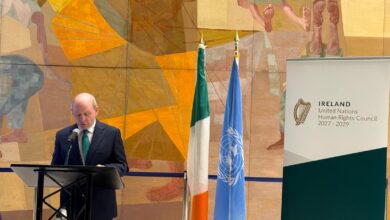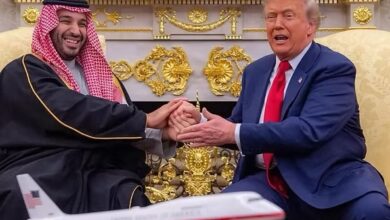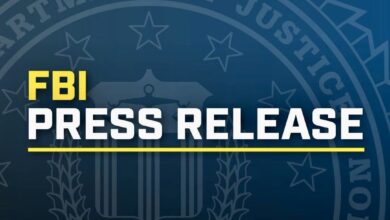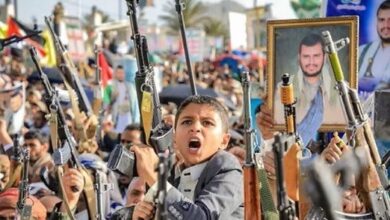Gaza, Genocide, and Global Hypocrisy: The Elders Confront the Crisis Head-On

New York – HomemadN News -from – American Television News
Mary Robinson, Juan Manuel Santos, and Zeid Ra’ad Al-Hussein, break ranks with silence and ignite a moral reckoning at the UN
The Elders at UNCA, From Left to Right, Edith Lederer (AP), Juan Manuel Santos Chair of The Elders and former President of Colombia and Nobel Peace Laureate, Zeid Ra’ad Al-Hussein, former UN High Commissioner for Human Rights, Mary Robinson former President of Ireland and former UN High Commissioner for Human Rights

By Ahmed Fathi
UNHQ, NEW YORK — In a moment that felt both familiar and quietly hopeful, the United Nations Correspondents Association (UNCA) welcomed The Elders—a group founded in 2007 by Nelson Mandela—to a frank and at times emotional conversation on the future of Israel and Palestine.
Held just hours after a high-level conference co-hosted by France and Saudi Arabia on the two-state solution, the panel featured Nobel Peace Prize Laureate and former Colombian President Juan Manuel Santos, former Irish President and UN High Commissioner for Human Rights Mary Robinson, and Zeid Ra’ad Al-Hussein, also a former UN Human Rights Chief and now Chair of the International Peace Institute. The discussion was skillfully moderated by veteran AP correspondent Edith Lederer, UNCA’s First Vice President.
What emerged was not just another roundtable of dignitaries repeating the well-worn talking points. It was a masterclass in humility, history, and hard-earned wisdom.
“From Words to Willpower”
Mary Robinson opened the panel with cautious optimism, praising the substance emerging from the day’s working groups, while underscoring the “unbearable” humanitarian crisis in Gaza. She didn’t mince words: “There is a widespread sense now that this Israeli government is committing genocide,” she said, referencing recent findings by Israeli rights organizations B’Tselem and Physicians for Human Rights–Israel.
Her remarks were grounded in legal precedent, citing the ICJ’s advisory opinion and violations of Article 2 of the EU-Israel Association Agreement. But beyond the law, her moral clarity resonated: “This is a moment to act—not just speak.”
“The Impossible Becomes Inevitable—When Done”
President Santos, drawing on Colombia’s peace deal with the FARC after decades of war, struck a chord with a sentiment rarely heard in today’s hyperpolarized diplomacy: patience with purpose.
He criticized Israeli Prime Minister Netanyahu’s vow to “eliminate Hamas,” calling it a “major strategic mistake.” In his words, “Hamas is a cause, not just an organization. And every militant killed gives birth to two more.”
Santos, now Chair of The Elders, acknowledged the complexity of including Hamas in future governance but insisted that pressure—political and military—must be balanced with incentives. “Every conflict has something each party wants,” he reminded the room, urging negotiators to find that leverage.
“A Land for All: Ideas from the Ground Up”
Zeid Ra’ad Al-Hussein brought attention to grassroots efforts like Two States, One Homeland—a Palestinian-Israeli initiative that envisions mutual sovereignty and an end to occupation without endless land-swap negotiations. “The brilliance of this plan is that it’s not ours,” he said. “It’s theirs—born from activists and lawyers living this reality.”
His candid assessment? “We’ve all been here long enough to suffer from a form of PTSD. But leave and come back—you’ll notice the shift.”
Questions That Cut Through the Fog

The press corps didn’t shy away. I raised the issue of enforcement: How can the consensus on Palestinian statehood move from resolution to reality when Israel rejects unilateral recognition, and Hamas remains entrenched in Gaza?
Santos replied with what may be the panel’s most instructive lesson: “You cannot change reality with carrots alone, nor with sticks alone. You need both—and you need trust.”
He emphasized the importance of broadening the dialogue to include actors like Iran, with the goal of politically cornering Hamas into becoming part of the solution, not the problem.
Robinson, meanwhile, challenged the notion of futility: “This is not déjà vu. There are steps—real ones—being taken. The world is shifting. The momentum is building.”
A Declaration, and a Delicate Window
As questions continued, Zeid noted the symbolic return to a “Madrid-style” multilateral process, a far cry from the stagnant bilateral talks of the past. With France and Saudi Arabia guiding the declaration expected this September, hope lies in its capacity to be a launchpad, not just another ceremonial endpoint.
In her final word, Robinson paid tribute to the late UN diplomat Mohammed Sahnoun, recalling how a famine in Somalia—and one man’s moral conviction—sparked her lifelong belief that courage and humanity must lead policy.
“Let’s Not Wait for History to Repeat Itself”
The room may not have been filled with fireworks, but it pulsed with urgency. These were not just elder statespersons trading rhetoric—they were architects of peace, cautioning against complacency and pushing the world toward deliverables.
“Let’s hope we all live to see peace in the Middle East,” Edith Lederer said, closing the event with a sentiment that felt less like wishful thinking, and more like a collective plea.
If peace feels impossible, The Elders reminded us, it’s only because it hasn’t been done—yet.



